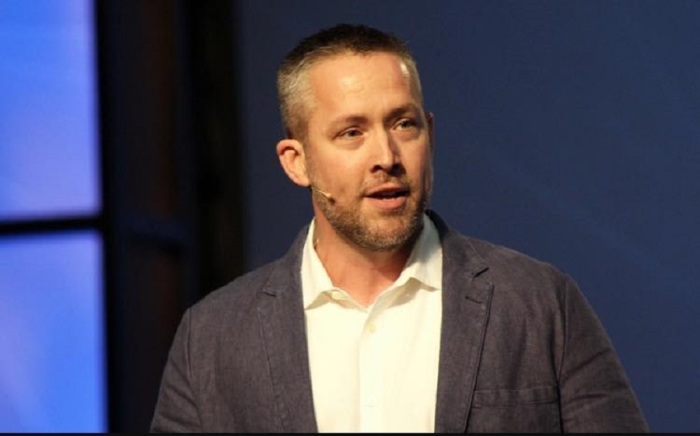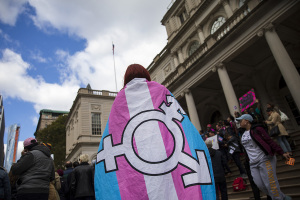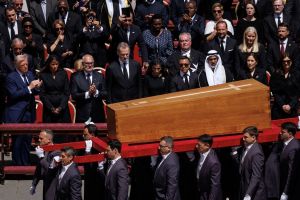SBC head suggests expelling churches, creating registry to address sex abuse

A week after an investigation highlighted more than 700 victims of alleged sexual abuse at the hands of hundreds of Southern Baptist Convention leaders and volunteers, the organization’s president, J.D. Greear, suggested the possibility of expelling churches and creating a registry of offenders.
In an address to the SBC's executive committee on Monday in Nashville, Tennessee, Greear proposed a range of reforms to help make churches safer. The 10 "calls to action" include repenting, providing free training for ministry leaders, encouraging churches to review and strengthen their policies on abuse and a re-examination of the ordination process.
He also recommended requiring background checks for SBC leadership groups and entities, and changes to governing documents that would allow for "disfellowshipping" churches that mishandle abuse.
He noted that "every option is on the table" to address the problem, including a registry of convicted or credibly accused church leaders and volunteers. That registry was previously floated as an idea in 2008 but struck down because SBC leaders could not force churches to report such information to a registry, The Houston Chronicle reported. In recent times, however, it has received the support of many SBC figures.
"If we don’t get this right, our churches will not be a safe place for the lost," Greear, who also leads The Summit Church in North Carolina, told the leaders. "That is not something that I am OK with ... I know that it is not something that you’re OK with either."
The Houston Chronicle published the first report in a three-part series just over a week ago. It found more than 700 victims of alleged sexual abuse by 380 Southern Baptist leaders and volunteers since 1998. Some 220 have been convicted and 100 are still in prison.
Many of the victims, who were children when the abuse occurred, accused other Southern Baptist leaders, including past presidents, of concealing their ordeal. Some of those who were accused of sexual abuse also reportedly left their congregations and were able to find jobs in other Southern Baptist churches.
During the Executive Committee meeting, Greear called for an evaluation of the churches that were highlighted in the Chronicle investigation to determine "if their standing aligns with our faith and practice." One of the churches called out in the investigation was the more than 60,000-member Second Baptist Church in Houston. The churches have been accused of having "displayed a wanton disregard for the seriousness of abuse."
"I am not calling for disfellowshipping any of these churches at this point, but these churches must be called upon to give assurances to the Southern Baptist Convention that they have taken the necessary steps to correct their policies and procedures with regards to abuse and survivors," Greear said.
In their response to the Houston Chronicle investigation, Second Baptist stated that it "takes allegations of sexual misconduct or abuse very seriously and constantly strives to provide and maintain a safe, Christian environment for all employees, church members and guests ... our policy and practice have been and will continue to be that any complaint of sexual misconduct will be heard, investigated and handled in a lawful and appropriate way."
The recommendations by Greear to address sexual abuse in SBC churches are the first to come out of the sexual abuse advisory group Greear formed last year shortly after he was elected president in June, according to the Tennessean. The convention's Executive Committee had allocated $250,000 for the group’s work.
"Whatever we've done in the past we know clearly was not enough," he said.
While Greear has made initial recommendations to make SBC churches safer, it was highlighted that the denomination’s current governance structure could be a hurdle to implementing these reforms since Southern Baptists believe in local church autonomy.
Amy Whitfield of Southeastern Baptist Theological Seminary who attended Monday’s meeting said it’s going to take churches working together to get the reforms going.
"In order to accomplish a lot of these things, everybody is going to have to come and play a role," Whitfield told the Tennessean.
Thom Rainer, CEO of the SBC's publishing arm LifeWay resources, told the Houston Chronicle that his organization does not currently provide materials for how churches can assist victims of sexual abuse, and acknowledged it is a "mistake we need to correct, and that we will correct."
He also noted that background checks for ordination, ministerial or informal staff candidates have been almost nonexistent both at churches and other related organizations he's helped lead. He said he supports the idea of having some sort of registry to check staff backgrounds.
"I think this is the loudest I've ever heard it, [and] from the most influential sources," he told the Chronicle. "That is absolutely huge. We've definitely had people advocating it up to this point, but it has never been at the crescendo that it is now."
Russell Moore, who leads the SBC's Ethics and Religious Liberty Commission, told the Tennessean that he was encouraged by the advisory group addressing the lack of information sharing between churches as a challenge.
"I'm encouraged that the advisory group has been taking that challenge very seriously and bringing in the best expertise to dig through how can we do this in a way that actually works and enables congregations to know what's happening in other congregations in order that they can be better prepared," Moore said.





























